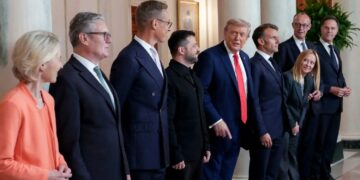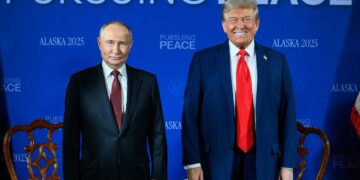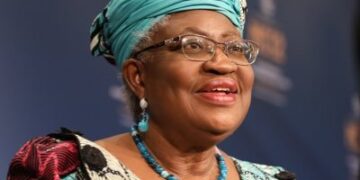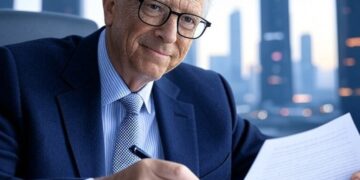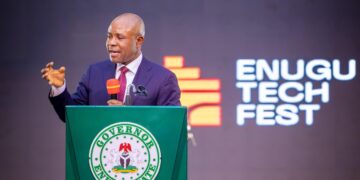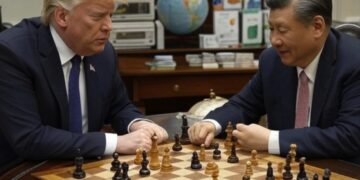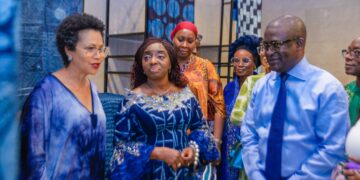In a provocative and widely discussed opinion piece, Dr. Olufunmilayo Ogunsanya, a UK-based Nigerian medical doctor and social commentator known as @OurFavOnlineDoc on the social media platform X, has proposed a radical three-point legislative agenda to overhaul Nigeria’s political system. Published exclusively for *Stakeholders Magazine*, Dr. Ogunsanya’s article outlines a vision to ensure that only genuine patriots—those driven by service rather than greed—seek public office in Nigeria. His proposals, grounded in a deep understanding of the nation’s systemic challenges, aim to dismantle the parasitic culture that has long plagued Nigerian politics. Below, we present a detailed report on Dr. Ogunsanya’s transformative ideas, which have sparked intense debate among policymakers, activists, and citizens alike.
The Context: A Call for Systemic Change
Dr. Olufunmilayo Ogunsanya, a Nigerian physician practicing in the United Kingdom, brings a unique perspective to Nigeria’s political discourse. His dual identity as a Nigerian and a global citizen informs his critique of the nation’s governance, which he describes as riddled with self-interest, corruption, and a stark disconnect between leaders and the masses. “Nigeria’s political landscape is plagued by a cycle of opportunism,” Dr. Ogunsanya writes, pointing to the lavish salaries, foreign privileges, and unchecked corruption that define the current system. His solution? Three bold laws designed to realign the incentives of political office, ensuring that only those committed to the public good dare to run.
Law 1: Minimum Wage for All Government Officials
Dr. Ogunsanya’s first proposal is a seismic shift in how public officials are compensated. He advocates for a law mandating that every government official—from the president to local councillors—earn Nigeria’s minimum wage, currently set at ₦70,000 per month. “No exceptions, no allowances, no inflated salaries,” he emphasizes, arguing that this measure would deter those who view politics as a path to personal enrichment.
The contrast between Nigeria’s political elite and ordinary citizens is stark. While senators reportedly earn millions monthly, teachers, nurses, and other workers struggle to survive on meager wages. Dr. Ogunsanya contends that this disparity attracts “parasitic” individuals who see public office as a lucrative career rather than a call to serve. By capping salaries at the minimum wage, the law would filter out opportunists, leaving only those willing to live like the average Nigerian.
“If ₦70,000 is deemed sufficient for workers, it must be sufficient for politicians,” Dr. Ogunsanya writes. He envisions a system where leaders are forced to confront the economic realities of their constituents—budgeting for food, transport, and rent on the same wage as a civil servant or market trader. Those unwilling to accept this standard, he suggests, can seek opportunities in the private sector.
Beyond deterring greed, the policy would free up significant public funds. Dr. Ogunsanya argues that redirecting savings from bloated political salaries could transform critical sectors like healthcare, education, and infrastructure. “Politics should not be a get-rich-quick scheme,” he asserts. “It should be a sacrifice for the greater good.”
Law 2: Mandatory Use of Public Institutions
The second law proposed by Dr. Ogunsanya would require all public officials and their families to use Nigeria’s public institutions exclusively. This means government hospitals for healthcare and public schools for education—no private clinics, no foreign medical tourism, no elite international schools. “If a politician falls ill, they must seek treatment in a government hospital,” he writes. “If they have children, those children must attend public schools.”
This proposal addresses a glaring hypocrisy in Nigerian governance: leaders champion public institutions for the masses while avoiding them personally. Nigeria’s public hospitals are often underfunded, understaffed, and ill-equipped, with patients dying from preventable causes like lack of oxygen or faulty equipment. Yet, when politicians or their families fall ill, they seek treatment abroad in countries like the UK or the US. Similarly, public schools suffer from strikes, dilapidated infrastructure, and underqualified teachers, while politicians’ children attend private or foreign institutions.
Dr. Ogunsanya argues that forcing leaders to rely on the same systems as ordinary Nigerians would create a powerful incentive to improve them. “If a senator knows their family’s survival depends on government hospitals, they’ll prioritize fixing them,” he writes. The same logic applies to education: if a politician’s child faces the same strikes and delays as a farmer’s child, reforms will follow swiftly. “Why should a politician’s child study in Oxford while a teacher’s child languishes in a collapsing school?” he asks.
By aligning the interests of leaders with those of the masses, this law would end the double standard that allows politicians to escape the consequences of their failures. Dr. Ogunsanya envisions a ripple effect: better hospitals, better schools, and a governance system rooted in equality.
Law 3: Swift and Severe Punishment for Corruption
Dr. Ogunsanya’s third proposal targets Nigeria’s most pervasive issue: corruption. He calls for the establishment of special courts to handle corruption cases, with trials concluding within six months to a year. Those found guilty by a competent court should face severe consequences: a minimum 30-year prison sentence without parole or, in extreme cases, the death penalty. “These punishments must be televised,” he writes, “ensuring national shaming and maximum deterrence.”
Corruption, Dr. Ogunsanya argues, is not just theft—it’s a betrayal of millions, costing lives and futures. Stolen funds meant for hospitals, schools, or roads leave citizens suffering in poverty and despair. Yet, the current judicial system allows corruption cases to drag on for decades, undermining justice and emboldening looters. Special courts would ensure swift investigations and trials, closing loopholes for delays or manipulation.
The severity of the proposed punishments reflects the gravity of the crime. “When you steal public funds, you’ve stolen the future of millions,” Dr. Ogunsanya writes. He draws inspiration from countries like China, where high-profile corruption cases are handled decisively and publicized widely. By making consequences swift and severe, Nigeria could deter even the most brazen offenders. Televised sentencing would amplify the message: looting is a crime against the nation, and it will not be tolerated.
The Path to Implementation: A People’s Movement
Dr. Ogunsanya acknowledges the skepticism surrounding his proposals. “Critics will ask, ‘How can lawmakers who benefit from this broken system pass such reforms?’” he writes. His answer is a call to action for the Nigerian people. He urges citizens to unite and demand that candidates commit to these three laws in the next election cycle. “If they refuse, we vote them out,” he writes. “If they renege after election, we recall them.”
This approach relies on collective resolve and the power of the electorate. Dr. Ogunsanya points to Nigeria’s history of collective action, from the anti-colonial struggle to the #EndSARS protests, as evidence that unity can drive change. Platforms like X, where he engages as @OurFavOnlineDoc, can amplify this movement, mobilizing citizens to hold leaders accountable. “It’s not about waiting for politicians to act,” he writes. “It’s about making it impossible for them to ignore us.”
Why It Matters: A Doctor’s Perspective
As a UK-based doctor, Dr. Ogunsanya brings a global perspective to his advocacy. He contrasts Nigeria’s dysfunctional systems with the UK’s National Health Service, where leaders and citizens rely on the same healthcare infrastructure. “I’ve seen how systems built on accountability and public trust can function,” he writes. His experience abroad fuels his conviction that Nigeria can—and must—do better.
With Nigeria’s population projected to reach 400 million by 2050, Dr. Ogunsanya warns that the current dysfunction will only worsen without bold reforms. His three laws offer a path to a future where governance is a calling, not a cash cow. They challenge Nigerians to demand leaders who reflect their struggles and champion their aspirations.
Stakeholders Magazine’s Take
Dr. Olufunmilayo Ogunsanya’s proposals are as audacious as they are compelling. By tying politicians’ salaries to the minimum wage, forcing them to use public institutions, and enforcing severe anti-corruption measures, he envisions a Nigeria where only patriots seek office. While the path to implementation is fraught with challenges, his call for a people’s movement resonates deeply in a nation hungry for change.
As Nigeria grapples with its future, Dr. Ogunsanya’s voice—amplified through his platform as @OurFavOnlineDoc—offers a blueprint for transformation. His article is not just a critique of the status quo; it’s a rallying cry for citizens to reclaim their power. Whether these laws come to pass depends on the will of the people, but one thing is clear: Dr. Ogunsanya has ignited a conversation that Nigeria cannot afford to ignore.
Dr. Olufunmilayo Ogunsanya (@OurFavOnlineDoc) is a UK-based Nigerian medical doctor and social commentator advocating for systemic change in Nigeria.





